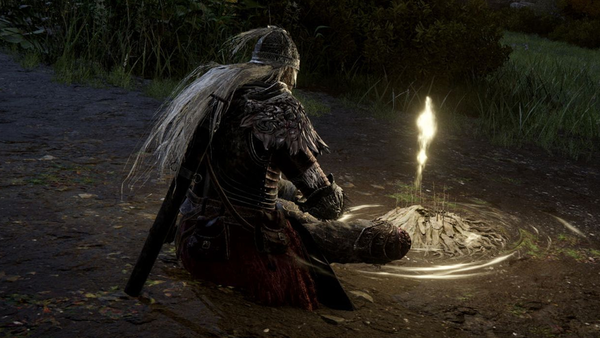Advertisement
Popular Now
Elden Ring, the highly anticipated collaboration between FromSoftware and George R. R. Martin, has captured the attention of gamers worldwide with its challenging combat mechanics and intricate world-building. For players looking to survive and thrive in this brutal yet rewarding environment, mastering the game's combat system is crucial. In this guide, we'll break down the essential steps to mastering Elden Ring's combat, from basic survival to advanced strategies.




Table of Contents:
- Getting Started with Combat Basics
- Understanding the Importance of Stamina
- Managing Health and Healing Items
- Learning Enemy Attack Patterns
- Perfecting Dodging and Rolling Techniques
- Utilizing Shields and Blocking Effectively
- Mastering Parrying for Counterattacks
- Choosing the Right Weapon and Build
- Balancing Magic and Melee Combat
- Preparing for Boss Fights
Getting Started with Combat Basics
The first step to mastering combat in Elden Ring is to understand the basics. Elden Ring's combat system is similar to other FromSoftware games like Dark Souls and Bloodborne but has unique elements that set it apart.- Light vs. Heavy Attacks: Every weapon in Elden Ring has two attack types—light and heavy. Light attacks are quicker but deal less damage, while heavy attacks take longer to perform but deliver devastating blows.
- Combos and Stamina Management: You can string light and heavy attacks together to create powerful combos, but be mindful of your stamina. Running out of stamina leaves you vulnerable to enemy attacks.
Understanding the Importance of Stamina
Stamina is one of the most vital resources in Elden Ring's combat system. It governs almost every action you perform during combat, from attacking to dodging and blocking.Why Stamina Matters
Stamina regenerates quickly outside of combat, but during battle, it depletes rapidly. If you exhaust your stamina, you’ll be left defenseless. Always keep an eye on your stamina bar.Tips to Conserve Stamina
- Use light attacks for less stamina consumption.
- Don’t spam dodge rolls; time them carefully.
- Equip armor and items that increase stamina regeneration.
Managing Health and Healing Items
In Elden Ring, healing is as crucial as landing successful attacks. You have limited healing items, and managing them properly can mean the difference between life and death.Types of Healing Items
- Flasks of Crimson Tears: Your primary healing resource that replenishes health.
- Sacred Flasks: These flasks can be upgraded at certain points to restore more health per use.
Healing Mid-Battle
While healing, you leave yourself open to attacks. To avoid unnecessary damage, heal when there’s distance between you and the enemy or after a successful dodge.Learning Enemy Attack Patterns
The key to surviving in Elden Ring is understanding enemy attack patterns. Every enemy has unique moves that, once learned, can be countered or avoided.Studying Enemy Movements
- Observe enemy attack patterns before engaging.
- Notice their wind-up animations to anticipate the attack.
Reacting to Patterns
Once you’ve learned an enemy’s moves, time your dodges and attacks to avoid damage while exploiting openings in their defense.Perfecting Dodging and Rolling Techniques
Dodging is one of your most important defensive tools in Elden Ring. Proper dodging can make you untouchable if used correctly.The Art of Dodging
- Time Your Rolls: Dodging too early or too late can lead to taking damage. Roll just as the enemy’s attack is about to hit for invincibility frames.
- Directional Dodging: Dodging towards an enemy can sometimes help you avoid large attacks, while dodging to the side may be safer for smaller ones.
Rolling vs. Blocking
While dodging uses less stamina than blocking, it leaves you more exposed. Use dodging when you’re comfortable with enemy patterns.Utilizing Shields and Blocking Effectively
While dodging can help you evade attacks, blocking is another essential skill in Elden Ring’s combat system. A well-timed block with a shield can negate damage and set up a counterattack.When to Block
Blocking is best used when you’re unsure of an enemy’s attack or when facing enemies that use rapid combos. However, blocking consumes stamina, so ensure you have enough to avoid being staggered.Shields vs. Two-Handed Weapons
Shields offer better defense but less mobility. Consider two-handing your weapon for increased damage output, but remember, you’ll lose the ability to block.
Mastering Parrying for Counterattacks
Parrying is a high-risk, high-reward technique that allows you to stagger enemies and land critical hits. It’s one of the most challenging mechanics to master but can make tough battles easier.How to Parry
Parrying involves pressing the block button just as an enemy’s attack is about to land. If timed correctly, the enemy will be staggered, and you can follow up with a riposte for massive damage.When to Parry
Parrying works best against humanoid enemies with predictable attack patterns. Avoid parrying against bosses or enemies with irregular movements.Choosing the Right Weapon and Build
Elden Ring offers a vast array of weapons and builds, from heavy swords and axes to nimble daggers and bows. Choosing the right weapon depends on your playstyle and the type of enemies you face.Weapon Scaling and Stats
Weapons in Elden Ring scale with your character’s stats, such as strength, dexterity, and intelligence. Focus on upgrading stats that complement your chosen weapon.Melee vs. Ranged
While melee combat is the game’s core focus, don’t overlook ranged options like bows and magic for crowd control and long-distance attacks.Balancing Magic and Melee Combat
Magic plays a significant role in Elden Ring, and balancing it with melee combat can lead to devastating results.Casting Spells in Combat
Spells range from offensive attacks to defensive buffs. Casting requires FP (Focus Points), so managing your FP pool is crucial.Magic Builds
- Focus on increasing your intelligence or faith stats if you prefer a spellcaster build.
- Combine melee attacks with spells for versatile combat styles.
Preparing for Boss Fights
Boss battles are the ultimate test of your combat mastery in Elden Ring. Each boss has unique mechanics that require careful planning and execution.Studying Boss Patterns
Before attacking, observe the boss's movements to learn its attack patterns. Most bosses telegraph their strongest attacks, giving you time to react.Best Strategies for Bosses
- Summon spirits or co-op partners for assistance.
- Use ranged magic attacks to weaken bosses from a distance before engaging in melee combat.




















